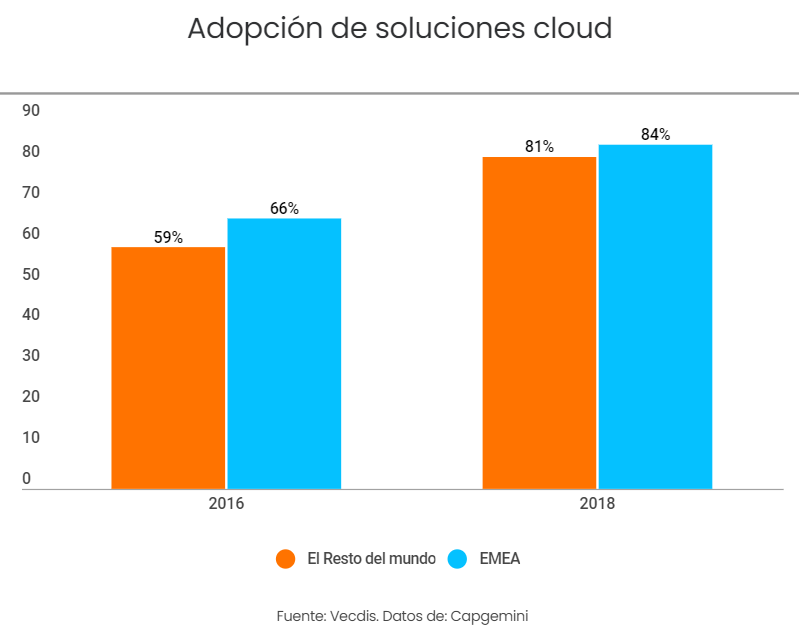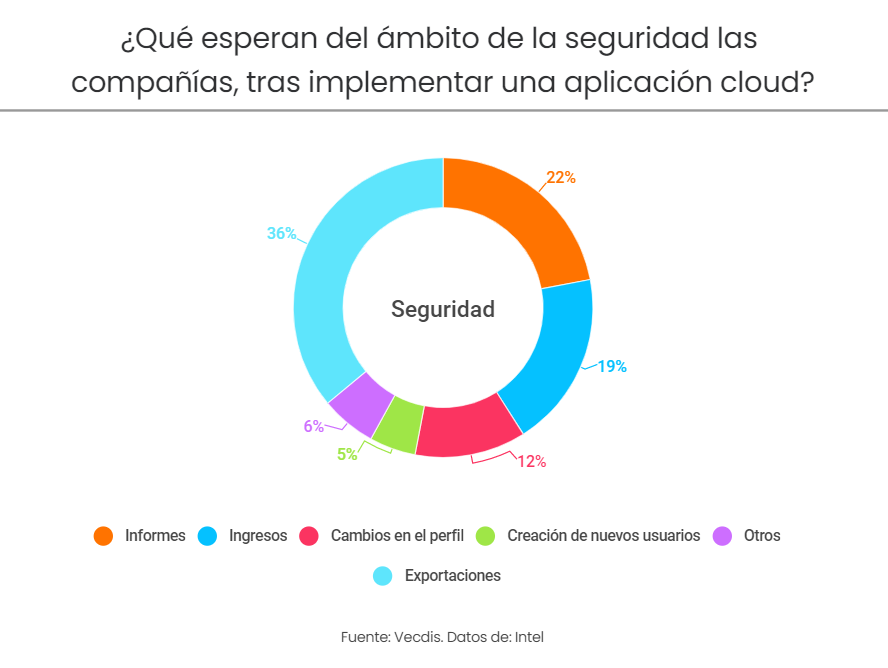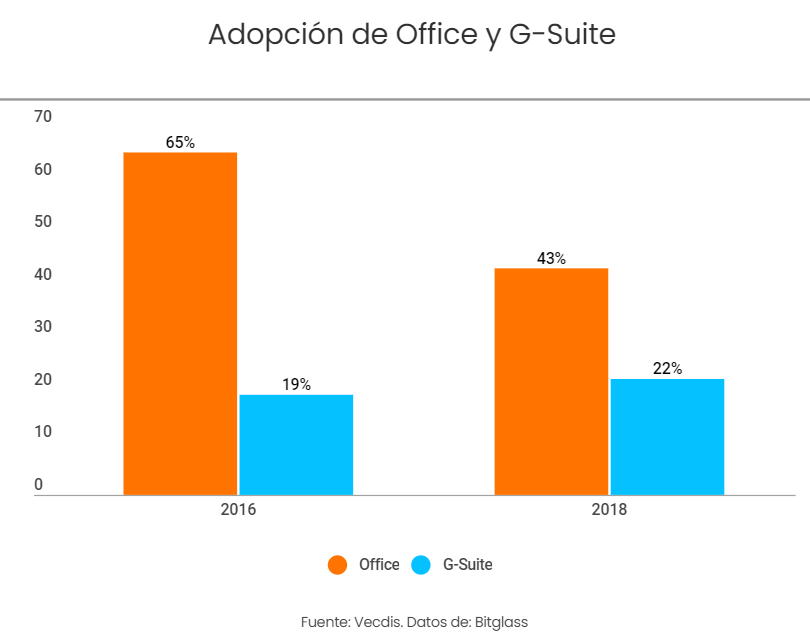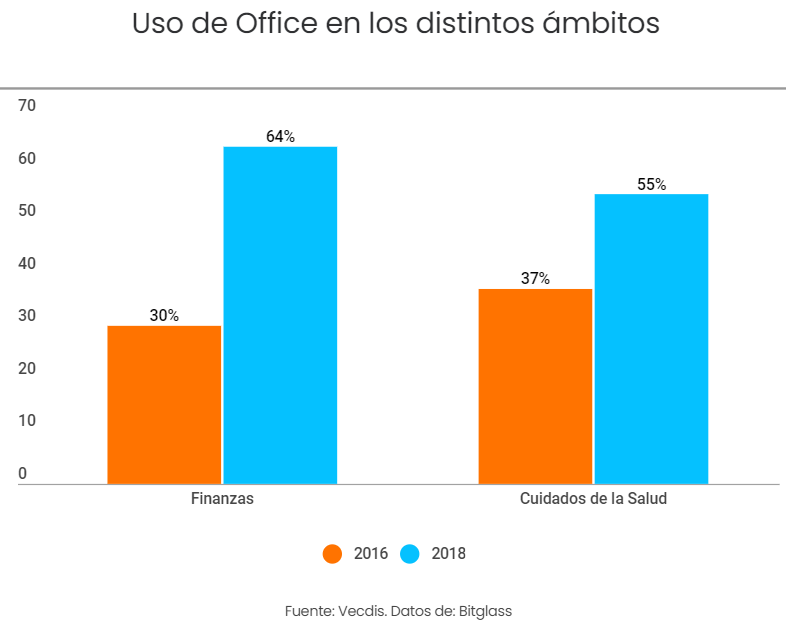Spending on Cloud apps reaches 206.2 billion in 2019

Across the UK and Europe, thousands of organizations are migrating to applications such as Office 365, AWS, G Suite, and Slack to take advantage of the productivity and low costs offered by the public cloud.
The adoption of this solution has reached 86% companies in the EMEA area. While growth may seem to be starting to stabilize, many companies have begun deploying additional cloud applications beyond basic productivity and email platforms.

Globally, spending on cloud applications will reach $160 billion in 2018, an increase of 20% since 2017. Gartner adds, that this figure will reach $206.2 billion in 2019.
This increase is due to the refocusing of the goals set by companies, which often leverage cloud computing as a central business points, managing workflows involving customer and lead data, human resources , accounting, computing, sales, etc.
Cloud security
Despite the high percentage of companies that have adopted this solution, Bitglass in its report“Raiders of EMEA CloudAdoption” concludes that only 47% of the organizations have a single authentication tool (SSO) to start session, and another 25% with other security systems.
According to Bitglass Marketing Director Rich Campagna:
“The results of this survey confirm the trends our 2016 study has pointed to: EMEA companies are adopting productivity applications in the cloud, but they still lack the security tools needed to protect their data . In cloud environments, security must evolve to protect data at many more endpoints and in many more applications.”
On the other hand, as Intel concludes in its report “SecurityState of Cloud Adoption andSecurity”, 49 of companies are delaying the adoption of the cloud because they perceive a lack of cybersecurity skills. However, it is alarming that one third (36%) of companies that claimed that they do not have sufficient security skills are adopting cloud platforms, which in the future may translate into vulnerabilities

As organizations switch to the cloud, they have also found new and more efficient ways to meet compliance requirements and security frameworks. Many cloud-based technologies have reinforced security features that can help comply with regulations and thus enable highly regulated industries to entrust their data to the cloud.
However, a misconception about cloud compliance is to think that the application provider is solely responsible for the security and compliance of its data storage and management. Instead, it is a shared responsibility.
The most popular platforms
In recent times the most popular platforms Office 365, Amazon Web Services (AWS), the Google Suite and Slack, are being used by organizations to increase productivity and reduce expenses in areas such as data storage and management, and everyday communications.

Microsoft’s Office 365 app stands out above the others with 65% of the companies,a 51 more than in 2016. It’s followed by AWS with a 21.8% and google Suite that’s used by 19% of the companies in EMEA.
On the other hand, there is Amazon which, although generally not one of the most popular in the EMEA region, stands out in countries such as Spain with an adoption rate of 30%, and France where it is used by 40% of the companies.
Apart from the big companies, new companies are emerging that launch cloud platforms. One of them is Qvest.cloud, owned by the company Qvest.Media.
It is an advanced management platform that allows third-party cloud applications to network in an integrated end-to-end workflow, and be used and monitored through a central user interface. The end-to-end platform components that were designed as cloud-native applications are cross-application features such as workflow orchestration, cloud automation, single sign-on user management, access management, monitoring, metering and billing and comprehensive IT security.
All of these features benefit not only traditional media companies, but all companies that want to efficiently manage, edit, distribute and monetize media assets along their digital media supply chain. With Qvest.Cloud, almost all business processes and media workflows can be accelerated and streamlined so you can react flexibly to changing market conditions and production requirements at any time.
The financial sector the most adopting
Public administrations top the adoption ranking, with a rate of 41.6%. However, public services are in the last position, reaching only 5.3%.
While the two most regulated sectors in EMEA have lag behind in cloud adoption, new rules like GDPR along with the demand for cloud application productivity have led many companies to implement sanctioned instances and controlled in the most widely used services.
In health and financial services, in 2018 the use of Office 365 compared to the 2016 figures. To date, 64% of the financial companies and 55% of the companies in the healthcare sector have implemented Office 365.

Similarly, enterprise messaging applications like Slack are now used in most companies in these industries.
Deploying only one application is a thing of the past
In almost every organization in the EMEA area, the Bitglass team found more than one deployed cloud application.
In previous years, many companies began deploying these platforms, switching email to Exchange Online or limiting only one file sharing service.
Today, most have some productivity app in use, a cloud messaging platform, an enterprise file sharing and synchronization tool, and probably some IaaS workloads.
The data in the report, published by Bitglass, revealed that the majority of organizations have deployed Office 365 or G Suite in addition to Slack. In the technology sector, for example, 3 out of 4 organizations have tried Slack and almost all have implemented some productivity application in the cloud.
Conclusions
A large portion of EMEA companies have been able to recognize the positive value that cloud applications bring between employees, security and suppliers.
Thanks to these applications the costs are reduced, which makes companies see cloud applications as an easily achievable option. To increase local productivity and collaboration among your employees using applications such as Office 365, AWS, or Slack.


